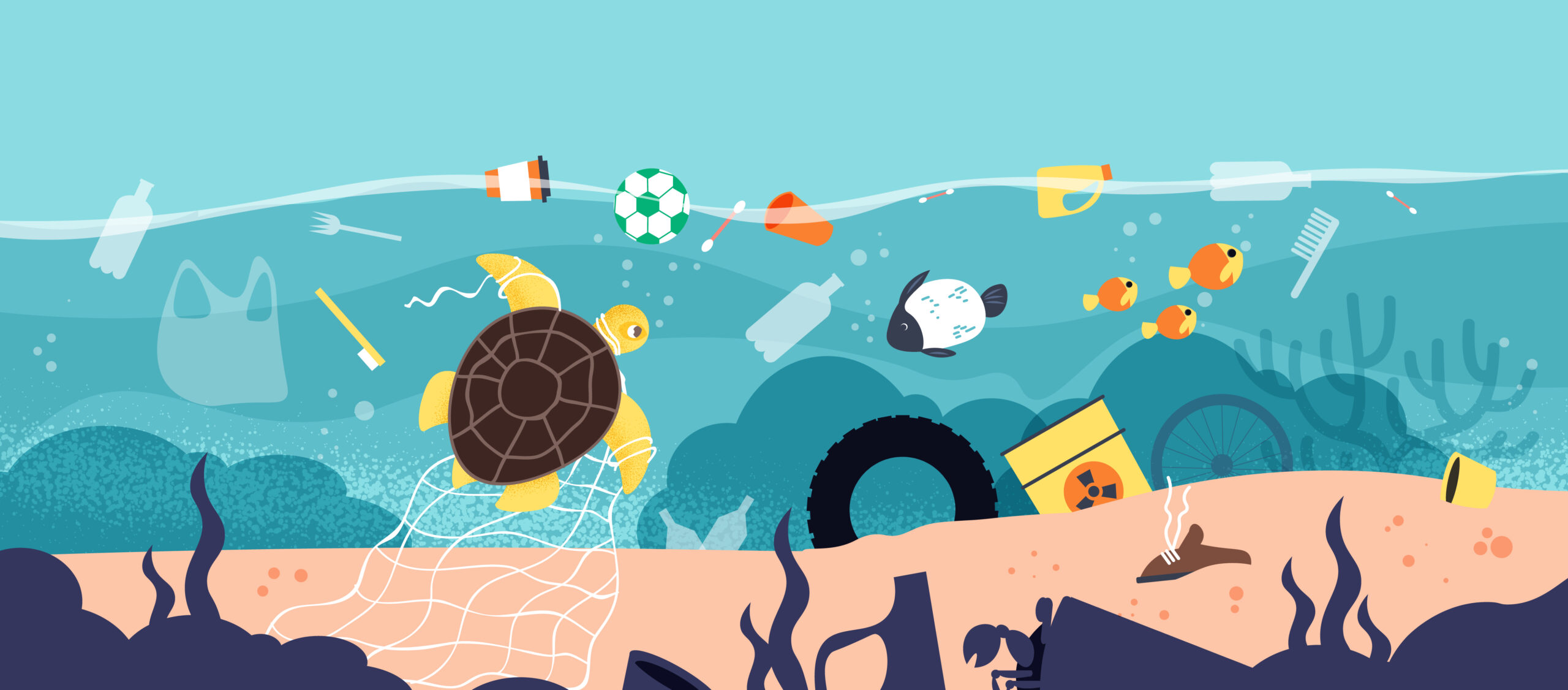
The Dangers of Plastic Waste: A Threat to Health and the Environment
Kehidupan di perantauan • 5 Juli 2025
Plastic has become an integral part of our lives. From shopping bags at the supermarket, and food wrappers, to the water bottles we carry every day. But, have we ever thought about what happens to plastic after we throw it away? The fact is, the plastic we throw away doesn’t just disappear. Plastic waste that accumulates in landfills or pollutes the oceans can last hundreds of years before it finally decomposes. Even more worrying, this plastic waste not only damages nature but can also have a direct impact on our health.
The Harmful Impact of Plastic Waste on the Environment

Carelessly discarded plastic can pollute soil and water, damage the air, and even worsen climate change. If left unchecked, the impact on life on Earth is enormous, such as:
1. Land Pollution
Plastic can pollute the soil and reduce soil fertility because plastic cannot be decomposed in a short time. It also disrupts water and air circulation, which is important for plants. If the soil is polluted by plastic, its quality will decrease, hindering plant growth and disrupting the balance of the soil ecosystem.
2. Water Pollution
Plastics carelessly dumped into rivers, lakes or the sea will damage aquatic ecosystems. Microplastics and large pieces of plastic can threaten the lives of marine animals because many animals mistake plastic for food. In addition, plastics that accumulate in the ocean form “garbage islands” that destroy the balance of the ecosystem and worsen the condition of the aquatic environment.
3. Air Pollution
Burning plastic waste produces harmful gases, such as dioxins, furans, and hydrogen chloride. These gases can pollute the air, damage its quality, and endanger human health, such as respiratory problems, heart disease, and even cancer.
4. Climate Change
Plastic production is energy-intensive, contributing to the emission of greenhouse gases such as carbon dioxide that exacerbate global warming. In addition, plastics that decompose slowly can release methane, a much more harmful greenhouse gas than CO2 that accelerates climate change.
The Harmful Impact of Plastic Waste on Human Health
Plastic waste that is wasted carelessly not only pollutes the environment but also endangers human health, as follows:
1. Poisoning
Toxic chemicals in plastic, such as bisphenol A (BPA) and phthalates, can enter the human body through food and drink, causing hormonal disruption, reproductive problems, and cancer.
2. Organ Damage
Exposure to heavy metals and microplastics can have serious health effects, including skin damage, as well as disorders of the nervous, digestive, respiratory, and endocrine systems, such as thyroid disease. In addition, toxic substances contained in plastics can interfere with the function of vital organs such as the kidneys and liver.
3. Digestive Disorders
Microplastics can enter the body through contaminated food or drink, such as fish or water, and can irritate the digestive tract, inhibit nutrient absorption, and disrupt gut function. In the long run, this can lead to indigestion and affect the balance of gut microflora, increasing the risk of other health problems.
4. Growth Disorders
Exposure to harmful chemicals found in plastics, such as bisphenol A (BPA) and phthalates, can adversely affect pregnant women and children. For pregnant women, these chemicals can affect fetal development, increase the risk of premature birth, or cause birth defects. In children, long-term exposure can disrupt the brain and physical development process, potentially leading to impaired growth, motor delays, or behavioral problems.
The impact of plastic waste is very dangerous and can threaten health and the environment. While the challenge is great, we all have an important role to play in reducing these impacts by reducing our daily plastic use. Start small, such as bringing your own shopping bags, using products with greener packaging, or choosing more sustainable alternatives. Together, we can create positive change for the planet and our future.


